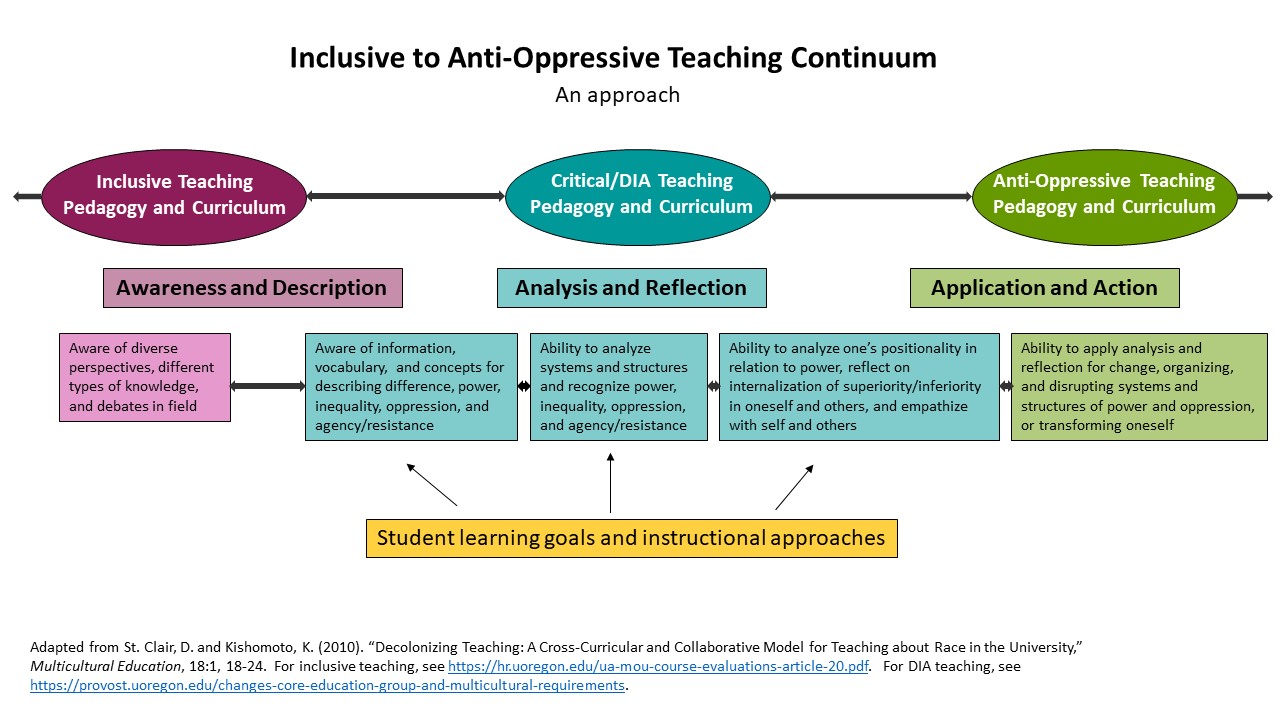11 DIA Courses and Inclusive Teaching at UO
The University of Oregon values “diversity and seek[s] to foster equity and inclusion in a welcoming, safe, and respectful community,” and it is in such a campus climate that students can learn to become “informed participants in the global community,” which is a stated core purpose of the University.[1] Clearly, the Cultural Literacy Core Education requirement is central to this aim, and this places US: DIA courses at the center of the University’s mission. Yet because DIA courses emphasize power imbalances that shape our society and ethical engagement with legacies of inequality, informed by the agency of those who are marginalized by such legacies, DIA courses infuse “cultural literacy” and “equity and inclusion” with a transformative edge. That is, implicit to the US: DIA requirement is an imperative for transformation, indeed, the development of “analytical and reflective capacities” to enable a shift in how we “understand and ethically engage with the ongoing (cultural, economic, political, social, etc.) power imbalances that have shaped and continue to shape the United States.” It is therefore appropriate to characterize DIA courses as cultivating cultural and equity literacy, as noted throughout this guide. By implication, this also entails a shift in how we understand and engage in the work of inclusion, namely as transforming legacies of exclusion and the power imbalances that reproduce them.
One way to frame the relationship between inclusive teaching and DIA teaching is to think of DIA teaching as a deepening of inclusive teaching to include explicit engagement with power imbalances and the systems that reproduce inequities and exclusion. Such consideration in turn points toward anti-oppressive interventions, resulting in an inclusive to anti-oppressive teaching continuum of learning goals and instructional fluency:
- See the UO Mission Statement, including Purpose, Vision, and Values, at: https://www.uoregon.edu/our-mission. ↵


